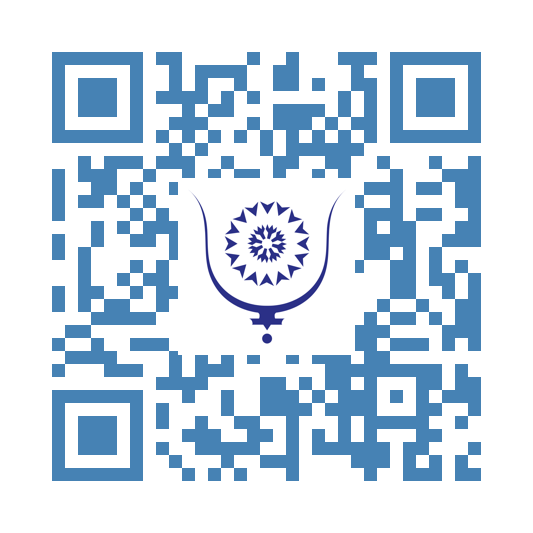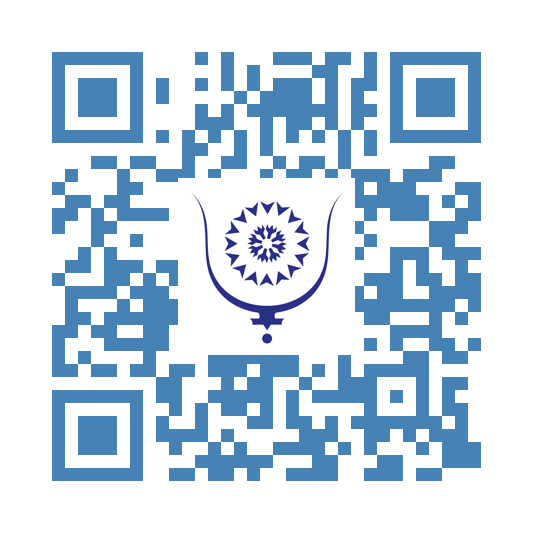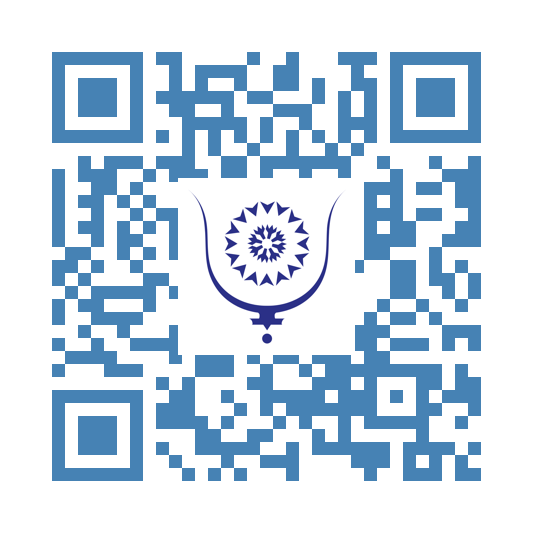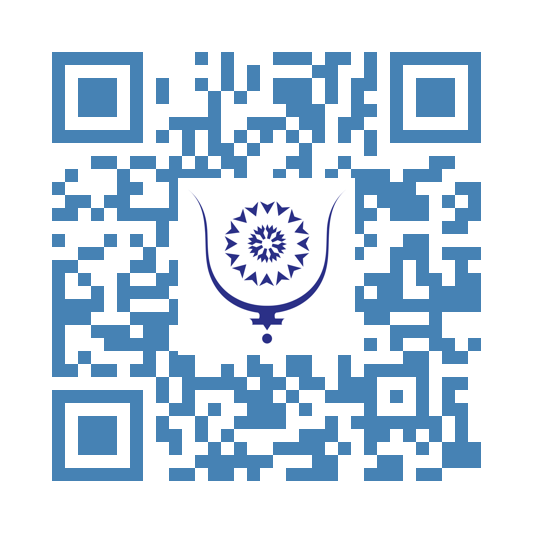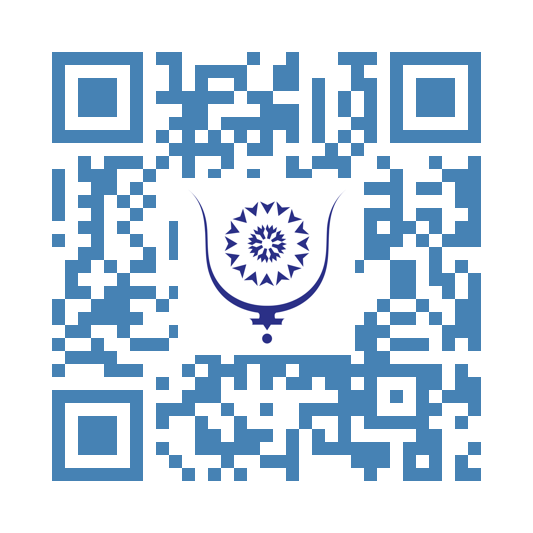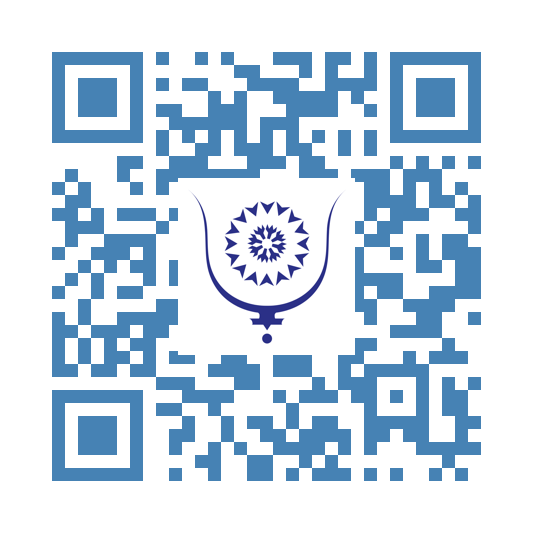Morocco, united and indivisible: October 31, memory and vision of a united kingdom...
37
There are dates that cease to be mere markers to become strong symbols.
By establishing le 31 octobre “Fête de l’Unité”, His Majesty King Mohammed VI has not only added a day to the national calendar of holidays: he has inscribed in the collective memory a certainty, that of a united Morocco, faithful to its history, confident in its destiny, certain of its future.
This choice, placed on the eve of the anniversary of la Marche Verte, is not a coincidence, but a message. It links two moments: one of memory, the other of hope, to remind that in Morocco, unity is not a stance, but a collective philosophy of life, a historical continuity, a conviction ingrained in the soul of the country and each of its citizens. The age-old unity of the Kingdom is the golden thread of Moroccan history.
**On November 6, 1975, three hundred and fifty thousand Moroccans, the Quran in one hand and the flag in the other, it must be recalled, supported by many nationals of friendly countries, including a Prince not to be overlooked, marched south to reclaim what should never have been lost: the Sahara, the Kingdom’s matrix.**
La Marche Verte was not a conquest; it was a return, a peaceful affirmation of a legitimacy older than the borders drawn with rulers on colonial maps. It was also a vow between the Throne and the people, between the past and the future. A vow that nothing, neither diplomatic maneuvers nor hostile campaigns, nor propaganda worth billions of dollars, could undermine. The Moroccan does not yield. The Moroccan is faithful to his commitments. The Moroccan keeps his word, the Moroccan is aware of the diversity of his country but conceives it only in unity and cohesion.
By deciding to make le 31 octobre "la Fête de l’Unité", His Majesty King Mohammed VI reactivates this vow and transposes it into the present time: Morocco’s unity is not a glorious memory, but a horizon built every day, a future forged on law and faith, diplomacy and perseverance, development and shared prosperity.
For half a century, Moroccan diplomacy has patiently unrolled the thread of a clear strategy: defending Morocco’s sovereignty over the Sahara without ever yielding to provocation, making legitimacy prevail by reason and not by force.
Recent résolutions du Conseil de sécurité have confirmed the soundness of this line. They endorse the seriousness and credibility of the Moroccan autonomy proposal, a realistic, modern path, consistent with the aspirations of the local populations and the entire Moroccan people who have adhered to it, fully understanding the sacrifice requested.
**Conversely, Algeria persists in an anachronistic stance, entrenched in its support for Polisario, which no longer represents more than a shadow of itself. A movement built on lies, fake news, and propaganda worth billions of dollars. It is probably the most costly situation of its kind since humans existed.**
No one has ever known how many Sahrawis truly followed Polisario, or how many, with the help of its patrons, it brought from Mauritania, Mali, Nigeria, Chad, and elsewhere to strengthen its ranks. The generosity of Gaddafi having greatly helped, it must not be forgotten!
Today, Algeria is cornered into allowing le recensement des populations des camps and census means, in parallel, identification.
The fixed discourse of the separatists no longer holds sway over reality: while the Tindouf camps are mired in waiting, the Southern Provinces of Morocco awaken to life, development, and dignity.
The contrast is striking: there, immobility; here, construction.
There, ideology; here, reality.
"La Marche Verte" was never a closed episode; it has become a national doctrine, a founding story, a living myth, the belief of a nation: the oldest nation in the world. It has forged a rare national consciousness, made of loyalty and faith in the continuity of the Kingdom. In a world marked by fragmentation and wounded identities, Morocco has made its unity a compass, not nostalgia.
In Laâyoune, Dakhla, Smara, Boujdour, or Bir Guendouz, the fervor of the October 31 celebrations says better than speeches the depth of this bond. These cities, once marginalized, today embody a Morocco on the move, confident, faithful to its roots, and looking to its future.
*The South is no longer a remote part of the Kingdom: it is its beating heart.*
The Sahara is a promise of the future, a development laboratory, and a strategic hub of the Kingdom. Investments in renewable energy, fishing, infrastructure, tourism, and logistics have transformed the region into an essential crossroads between Africa, the Atlantic, and Europe.
Here is being experimented, in open air, the royal vision of a modern, balanced, and inclusive Morocco, a Morocco that leaves no region behind.
The "Fête de l’Unité" is not just a tribute to the past: it is a projection into the future.
The "Fête de l'Unité" tells Moroccan youth that unity is not a legacy to be admired, but a building to be built, constructed day by day, through work, loyalty, and faith in the nation, with an unyielding respect for the memory of sacrifices and a firm belief in the promise of continuity.
On October 31, Morocco celebrates, but remembers: the soldiers fallen on the dunes, the diplomats who have defended the national cause on all the world’s stages, the pioneers who built in the sand the foundations of exemplary development.
Through them, it is a whole country that looks at itself in the mirror of its history, not to indulge, but to draw strength to go further. *Because deep down, Morocco’s unity is not a political act; it is a historical truth, a state of mind, a visceral loyalty.* October 31 simply gives it a name, a date, a renewed breath.
There is no unity without memory, nor memory without the future. Morocco has never celebrated the past for the past but always as an evocation to project into the future. It has never believed in a fixed memory rent. Strong in its history and regained sovereignty, it now advances with the serenity of those who have nothing to prove, only to pursue. Its DNA is special but never to isolate itself. On the contrary, the Kingdom sees itself as part of a world open to cooperation, freedom, and prosperity.
*In the southern wind, in the distance, the same vow always resonates:
One Kingdom, one soul, one destiny.*
Share:
Morocco, united and indivisible: October 31, memory and vision of a united kingdom...
copy:
https://bluwr.com/p/470136423
Complaints to God
303
💔 Complaint to God
O, you who struck me with arrows of betrayal
And want me to understand the cause of the harm
You think the wound has been bandaged
And that I have moved past the injustice
And forgotten that its puncture is still bleeding?
The heart still weeps from its burning pain
Despite the passing of years and seasons.
How astonishing she is, and her audacity,
How she narrates delusions,
And how life increases its smiles for her,
And how her eye finds comfort in sleep,
And enjoys dreams,
And thinks she is receiving blessings,
While she is the one who humbled stature and nations.
So, to the Lord of the Kaaba, I pray and complain of injustice,
For her injustice was a bad omen,
Not blameworthy,
For she is an ill omen that does not deserve a word from me,
Not even a greeting, nor peace.
So, to God I complain and plead for a judgment,
For Glorified is He, He is Wise and All-Knowing.
Dr. Fouad Bouchareb
All rights reserved
October 28, 2025
Share:
Complaints to God
copy:
https://bluwr.com/p/459701517
The Lost Necklace
347
The Lost Necklace
How beautiful is your dentition
Which sparkles like a necklace of diamonds
So Desirable and appetizing
When I kiss you and embrace you
With fervor and grace
I savor your saliva like such fine milk
Where musk and wine mingle
O apple of my eye
O gift from the heavens
It is you I love and desire
Your presence is a true pleasure
What must I do to attract you and please you?
When you fled
My insomnia deprived me of your smile
Suddenly the gleam of the necklace eclipsed
And I found myself sick and lost
To the great dismay of my messenger
Will you return one day?
Will you keep your promise?
Who will transmit my poetry?
Perhaps one evening the South wind
Will bring you my message
Which confesses my feelings and my pledges
My sorrows and my misfortunes
And the slender hope
Of seeing the gleam of your dentition in the dark one day
Dr Fouad Bouchareb
Inspired by an Andalusian music poem
Quoddam El Hgaz El Kebir
November 8, 2025
Share:
The Lost Necklace
copy:
https://bluwr.com/p/456678457
Ahmed Attaf and the Thousand-Time Waltz...
517
The latest appearance of the valiant Ahmed Attaf is strikingly different from what we have come to expect from him. Still hiding behind his habitual composure, he nonetheless lets a certain unease seep through this time. The man is embarrassed. He is at once a juggler, a tightrope walker, an acrobat, a dancer, and the regime’s fireman. He searches for his words, his sentences seem to cut his breath short. At times, he gasps. His statements are full of contradictions and twisted contortion, the very archetype of a diplomat out of breath, yet still skillful.
In his role as firefighter, he tries to reassure domestically, even to timidly proclaim, yet proclaim nonetheless, a great victory. Algeria, he insists, has made the entire world, the USA first among them, bend to its will. As a juggler, he seeks to reassure the great powers, pretending modestly that his country holds no grudges, thus avoiding any offense to their sensibilities. A perilous exercise indeed, for soon he will be summoned to the negotiating table as a direct stakeholder. There, he will need all his ingenuity to escape the dictates of peace that the international community seeks to impose, a peace to be built with Morocco. He now perfectly understands that he can no longer sail under disguise: his country is directly involved.
Behind his measured tone and carefully chosen words, his media appearance follows a precise logic built around three goals: calming the domestic front, preparing public opinion for a return to negotiations on the Sahara issue, and reaffirming Algeria’s red line: no normalization with Rabat. Like a skilled tightrope walker, he subtly boasts that the divergence with Washington and Brussels is “under control.”
Indeed, the U.S. can very well understand the first two points—internal appeasement and preparation for talks, but fundamentally differs from Algiers on the question of rapprochement with Morocco. For Washington, this normalization is a cornerstone of its Atlantic-African strategy surrounding critical minerals, a key front in its rivalry with China.
The European Union shares this view: it sees Moroccan-Algerian reconciliation as a prerequisite to reviving the Euro-Mediterranean project, which has been paralyzed for years by the rivalry between the two neighbors.
Brussels and Washington may both believe that this strategic disagreement can be managed in the short term, since their common priority remains the resumption of negotiations on the Sahara, a stabilizing priority for the region. But everyone understands that the Algerian military regime sent Attaf to absorb the shock of the New York earthquake.
His first mission, then, was to calm tempers after the blow dealt by the latest UN Security Council resolution, which reaffirmed the Moroccan autonomy plan as a serious and credible basis, indeed, the very outcome of the negotiation process.
Morocco’s diplomatic success triggered a real shockwave in Algiers, where the regime fears that diplomatic defeat could turn into internal strife between different factions of power, particularly between the military hierarchy and the political front.
To prevent such implosion, Attaf tried to rewrite the official narrative: the resolution, he claimed, was not a Moroccan triumph but an Algerian victory—Algeria had “prevented the imposition of the Moroccan agenda.”
This interpretation blatantly contradicts the statements of Algeria’s own representative at the UN, who justified the country’s abstention by the central role given to the autonomy plan.
Yet, in the media sphere, the maneuver worked. Attaf’s discourse found favorable echoes, even among certain critical circles within the regime.
In truth, this appeasement operation also suits Washington and Rabat: it guarantees the stability of the Algerian regime and maintains domestic calm, conditions necessary to pave the way for future discussions without internal interference. Everyone is now working to prepare the ground for negotiations.
Attaf’s second objective was to prepare national and international public opinion for the idea of returning to the negotiating table, in line with U.S. pressure to revive a concrete political process.
The minister thus sought to present the UN resolution in a positive light, even calling it “a victory for the principles of the Sahrawi cause,” while claiming that Algeria would have voted in favor if not for a phrase mentioning “Moroccan sovereignty.”
A clever balancing act, meant to narrow the gap between official discourse and diplomatic reality, and to justify a possible Algerian participation in new talks without appearing weak.
This tactical repositioning remains fragile. If U.S. pressure were to ease, Algiers might once again resort to delaying tactics to stall or hollow out the process. But the Americans are not fooled, and they are in a hurry.
From Morocco’s perspective, this evolution is far from unfavorable: Rabat favors a negotiated settlement, with no victor or vanquished, as long as autonomy remains the end goal. Algiers, for its part, seeks to preserve its red line, no normalization with Rabat.
The third axis of Attaf’s communication was to avoid an existential danger for the regime: being perceived as yielding to normalization with Rabat under Washington’s pressure. In a scenario of heightened constraint, Algeria might accept a political solution on the Sahara issue, but without taking the diplomatic rapprochement step.
To consolidate this stance, Attaf deliberately rewrote the lexicon of the UN text. Where the resolution speaks of “parties,” “political settlement,” and “autonomy,” he preferred “decolonization,” “referendum,” and “Sahrawi people.” This deliberate semantic shift aims to sustain the illusion that Algeria remains faithful to its doctrinal logic, even though the referendum scenario was abandoned by the United Nations nearly two decades ago.
His media appearance was therefore not merely a diplomatic reaction to a UN resolution, but a carefully orchestrated communication operation.
It pursued three objectives: to calm the domestic front, prepare public opinion for future talks, and reaffirm the refusal of any normalization with Rabat.
Ironically, these very three lines of communication, meant to defend Algeria’s position, end up reinforcing the UN framework for resolution—the very framework that enshrines Morocco’s autonomy plan as the main reference, redrawing regional balances to the benefit of Morocco and its Western allies.
Share:
Ahmed Attaf and the Thousand-Time Waltz...
copy:
https://bluwr.com/p/454824294
The Ultimate Dance 💃
491
The Ultimate Dance 💃
He whispers to me during our waltz
Words and beautiful phrases
He holds me tight in his arms
And takes me into extraordinary dreams
And the tears from my eyes...
As if by magic, illuminate earth and sky
He carries me to all corners of the dance floor
In this sweet evening between music and choristers
And I, like a child in his hands
Like a feather in a trance to the rhythm of the refrains
He offers me the stars and the moon and his hand
He hums hymns for better tomorrows
He offers me the sun
He offers me summer and its warmth
He promises me years of happiness
He tells me that I am unique
And that I am worth more than all the stars and Sputniks
That I am a treasure
The best picture on board
His words intoxicate me
To the point of making me lose the rhythm of my steps
Words of love that I don't know
Which restore my implacable femininity
He builds me a sandcastle
That I inhabit for a few unforgettable seconds
Then I return...
I return to my table
Just with memorable words
Dr Bouchareb Fouad
All rights reserved
November the 6th, 2025
Share:
The Ultimate Dance 💃
copy:
https://bluwr.com/p/452236034
When Morocco’s Greatest Match Becomes Its Worst Mirror…
677
The Casablanca derby, the supreme celebration of Moroccan football, meant to take place at least twice each season, has turned into a sad reflection of our collective failings. What should have been a hymn to the passion of football has become a march toward shame: the shame of not respecting the most basic alphabet of the game, of civility, of respect for others, and of the rules of the Federation and FIFA.
The latest edition, in particular, offered yet another all-too-familiar scene: flares, clashes, the throwing of incendiary objects, destruction of public and private property, and a match repeatedly interrupted. The green rectangle, once a sanctuary for the game and the players’ sporting performance, is now held hostage by the pyromania of the stands and the forced complacency toward behavior that is beyond disturbing.
This time, the sheer number of flares was so staggering that it raises countless questions: Who sells them? Who ignites them? And how are they so regularly smuggled into stadiums?
Who benefits from turning the Casablanca derby into a footballing wasteland?
It is no longer a football match, it is a war zone, a scene of spectacular movie-like special effects imported into the terraces. In the name of the club’s flag, common sense has been cast aside. Raja and Wydad, two monuments of our sport, are being manipulated, overtaken, hijacked, and exploited by crowds who confuse fervor with fury, believing they defend their colors while trampling the honor of the beautiful game. In the name of the club’s supposed love, we end up defending obscure causes far removed from the essence of the clubs themselves — if such an essence still exists.
It has become a kind of grandstand ultra-nationalism. Some groups have set themselves up as militias of the stadiums. They control the stands, impose their laws, and enforce their violence. They now even dictate the rhythm of the matches, play begins when they allow it and stops when they decree it. Their tifos are glorified, but few dare name their excesses for what they are. Yet behind the choreographies, sometimes splendid, sometimes tasteless, lie preparations worthy of a battlefield: sharp objects, stones, illegally imported flares and explosives, coded mobilization calls, and incitements to confront all that represents order.
Insults to institutions, fake news, subversive slogans, everything mixes together with no restraint or shame: a volatile cocktail of social grievances and barely veiled political activism. Even foreign policy and the country’s international positions are dragged into it. So much for the common good, the good of the entire nation.
Club officials feign surprise or hide away, waiting for the storm to pass, as if smashed buses, bent gates, and toxic smoke were accidents of fate. The authorities design strategies and take precautions, yet repeatedly face dangerous overflows. Their stance is paternalistic at best: as if dealing only with unruly children. The ringleaders, meanwhile, stay safely out of reach, though some are visible, even stepping onto the pitch to stir up and inflame the crowds.
As for the Federation, it responds with fines and closed-door matches, the same administrative ritual that no longer frightens anyone. Has football been taken hostage?
The consequences are disastrous: interrupted matches, financial sanctions, and a tarnished international image. Morocco, once celebrated for its popular fervor, now offers the image of a sick football, where passion blurs into madness. These outbursts kill the game, stifle talent, and drive away families who once dared to attend matches.
In a country where football is almost a religion, it is heartbreaking to see the temples of sport turned into lawless zones. Children who once dreamed of the derby as a founding myth now see only ritualized chaos, a folklore of wreckage. Some may even join in, believing this is simply “how it is.”
But should we resign ourselves and admit a failure of courage?
It is not club rivalry that is to blame, but our collective inability to civilize it. It was not always like this. The problem does not lie in the chants, but in what we tolerate in the name of passion. Stadium violence is, above all, born of silence: the silence of clubs unwilling to alienate their supporters; the silence of media that prefer to glorify the atmosphere rather than denounce its excesses; and the silence of authorities forced to maintain order alone before a crowd they were never meant to manage, unlike elsewhere.
By failing to choose and only punishing after the fact, we have allowed *charhabe* to settle in as a tolerated subculture, a norm, a distorted identity. The derby should not be a test of strength but a celebration of the city, of talent, and of the players’ pursuit of excellence on the field.
Yet the myth of the derby must survive, because beneath the rage lies a truth: the Wydad–Raja rivalry is one of the most beautiful stories in African, perhaps even world football. It has inspired generations, forged careers, and given birth to songs and dreams.
But this tradition will not survive if it continues to sink into hatred and absurdity.
The derby deserves better. Casablanca deserves better. Morocco deserves a football where passion does not mean madness, where the color of a jersey does not justify brutality and violence. If nothing changes, the kingdom’s greatest match may soon become its greatest scandal: **the Derby of Smoke.**
Share:
When Morocco’s Greatest Match Becomes Its Worst Mirror…
copy:
https://bluwr.com/p/448138883

